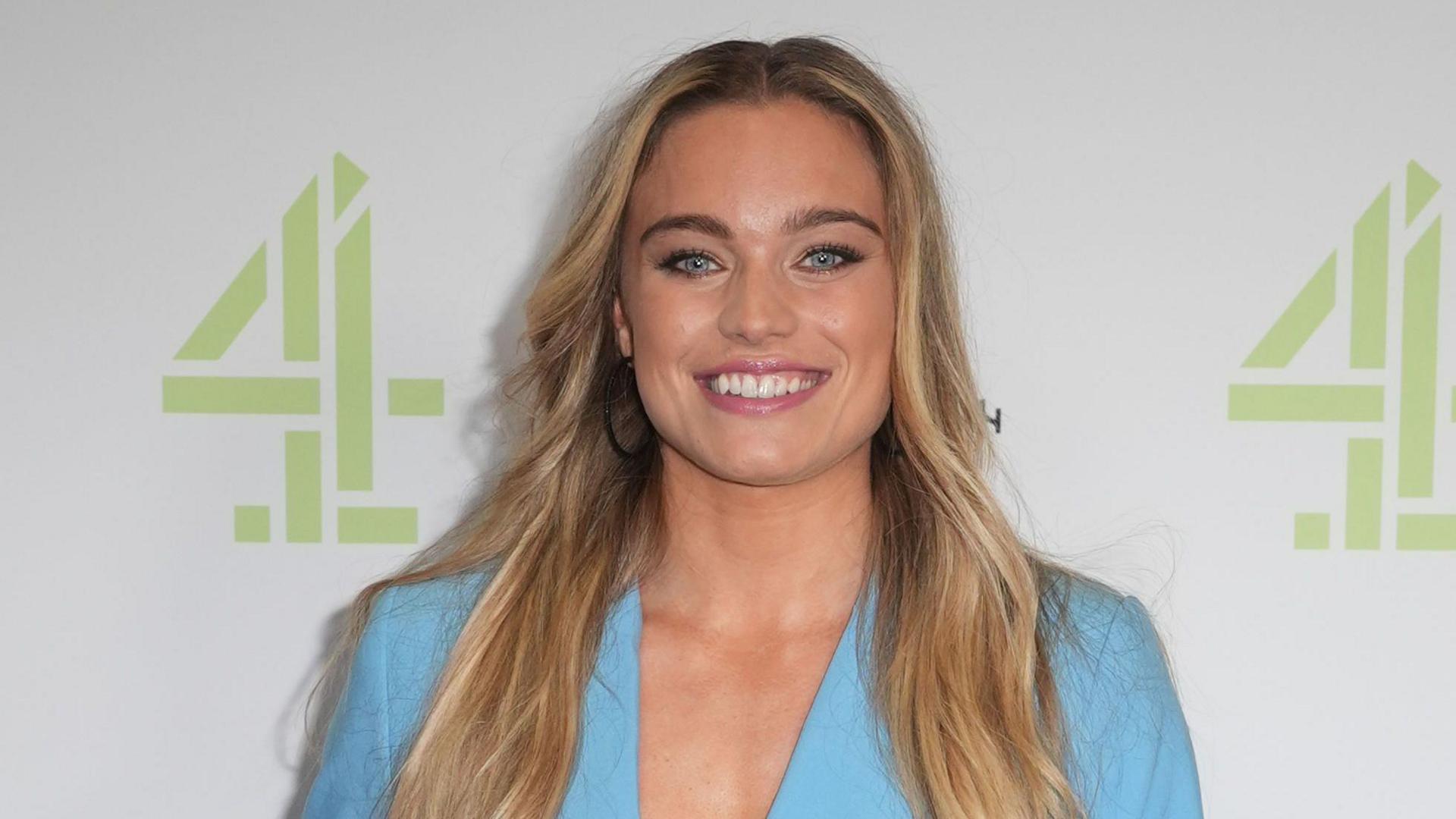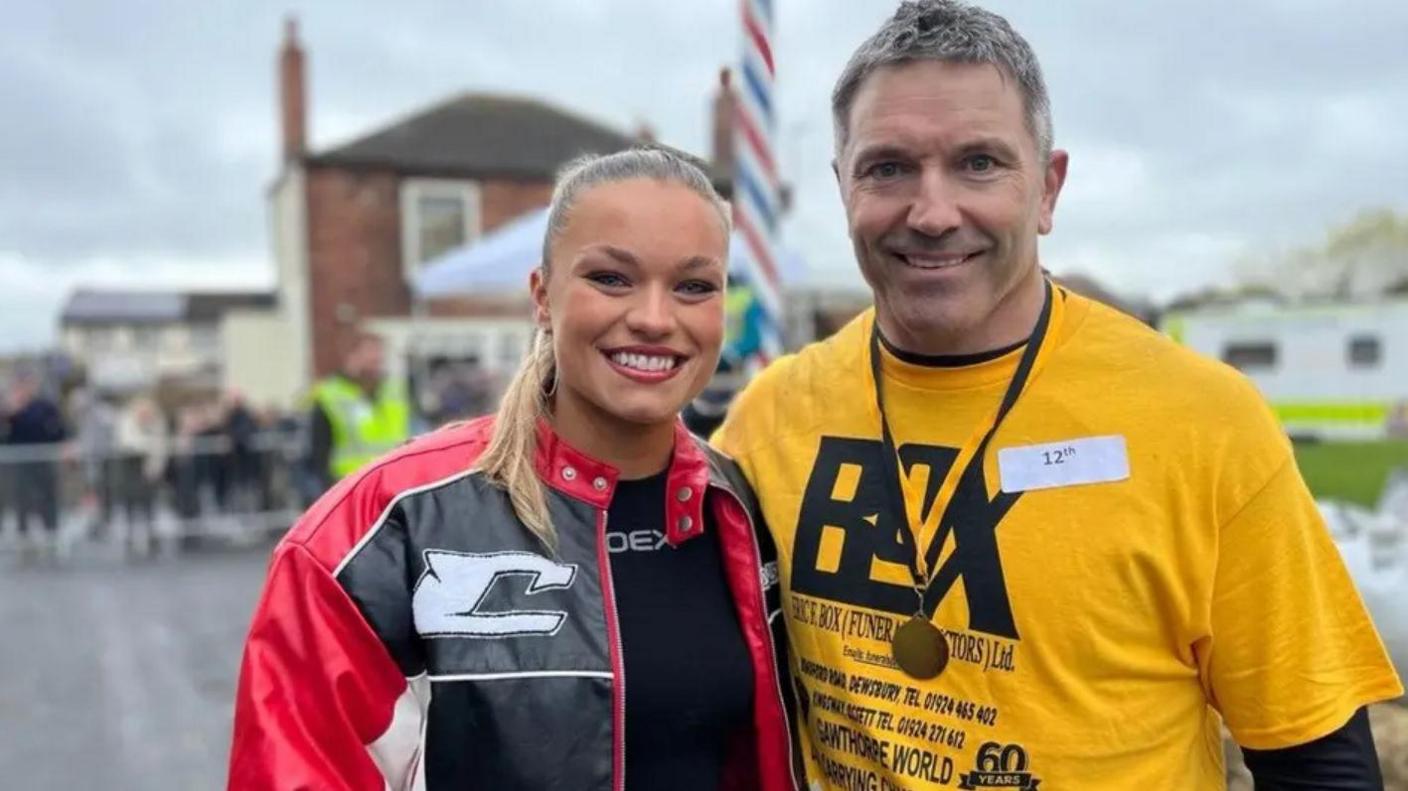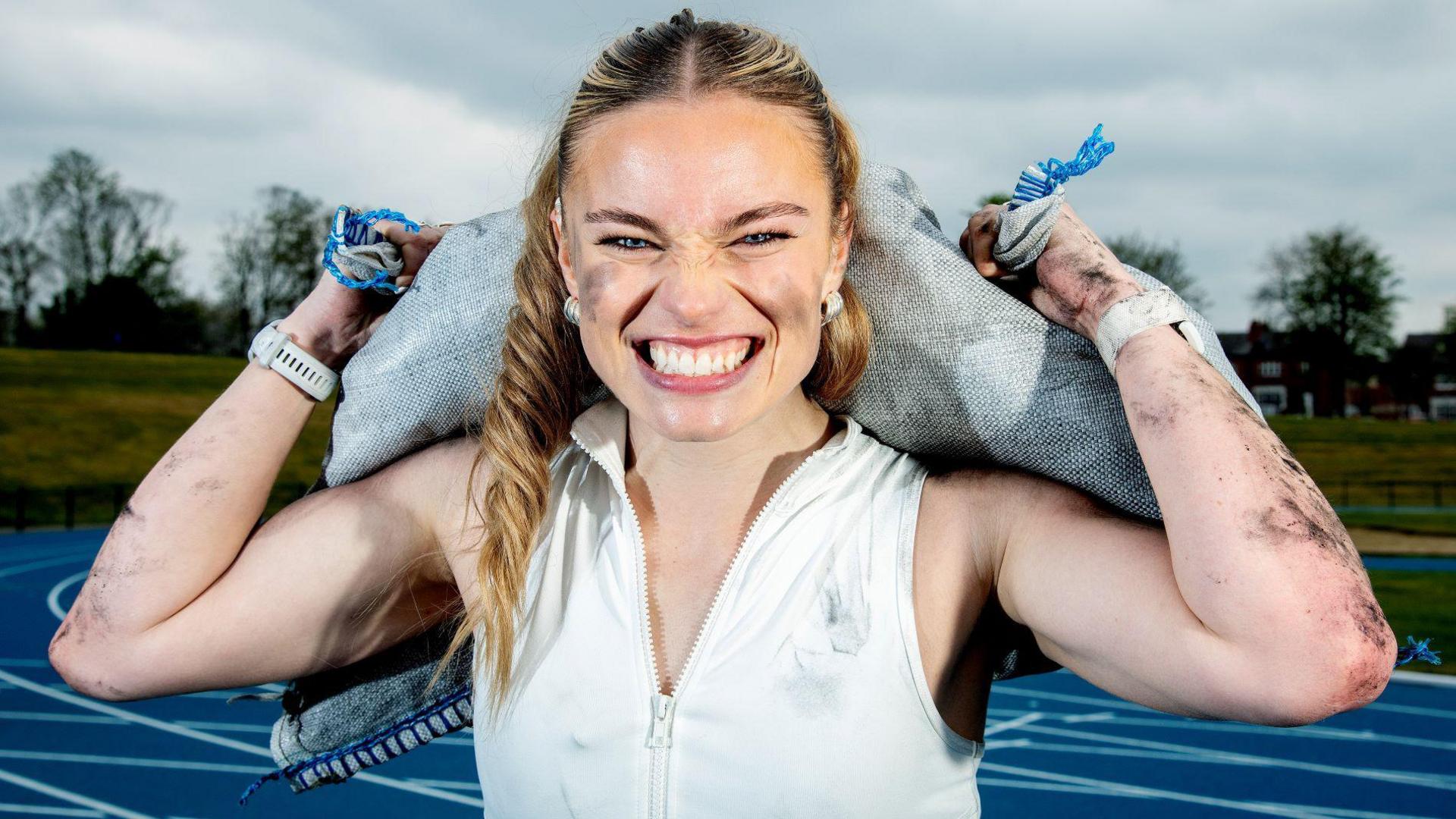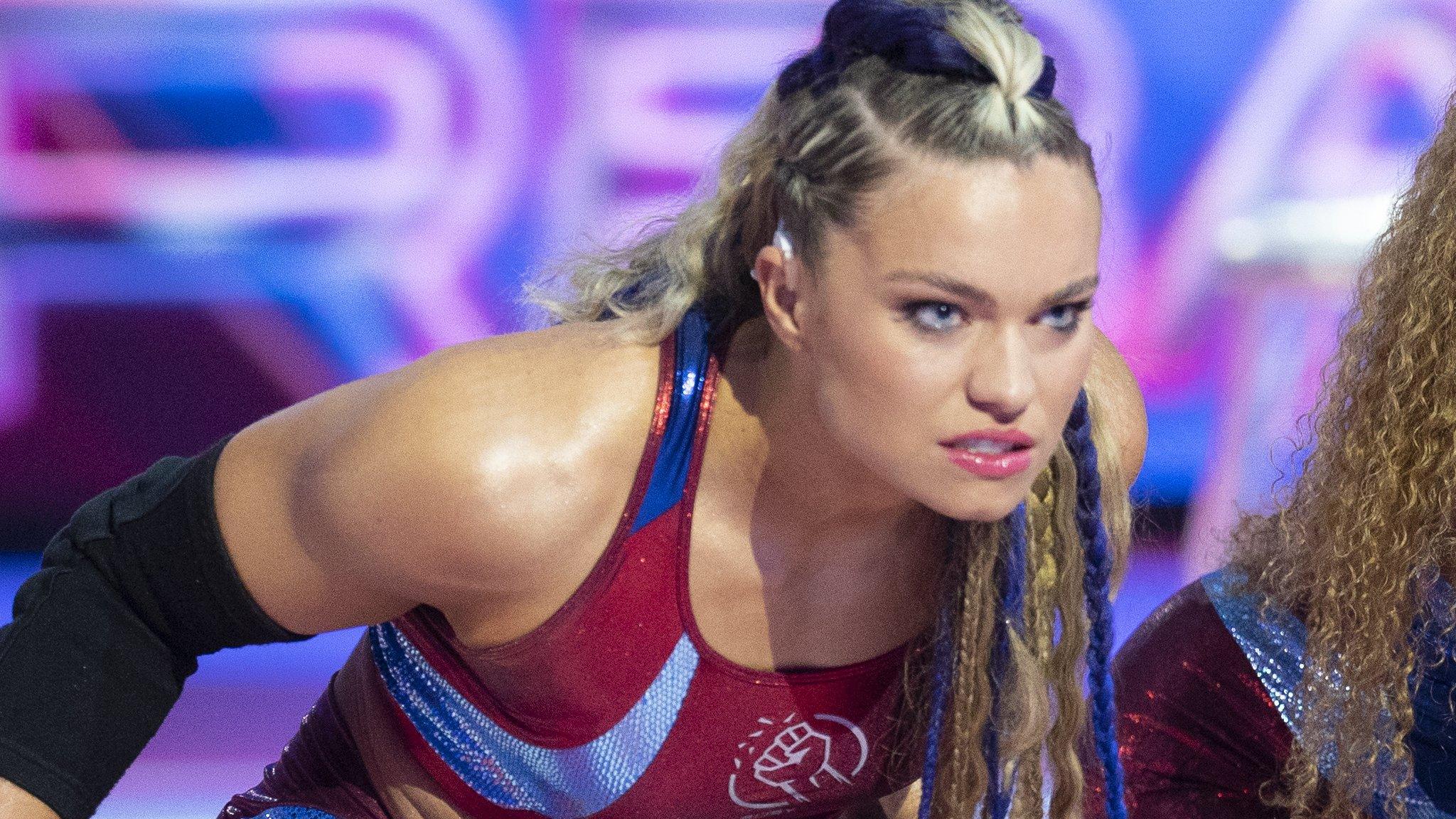'Why I speak with a Yorkshire accent despite being born deaf'

Jodie Ounsley, who is from Dewsbury, is profoundly deaf and was fitted with a cochlear implant at a young age
- Published
As a Gladiator and former rugby union England international Jodie Ounsley might expect to face a range of questions on her sporting achievements or her TV alter ego.
But in a recent social media post the 24-year-old revealed "the number one question" she is asked was "[If] you're born profoundly deaf, how do you have a Yorkshire accent?".
Known to millions as Fury, Ounsley, from Dewsbury, in West Yorkshire, was one of the youngest people in the UK to be fitted with a cochlear implant, undergoing surgery when she was just 14 months old.
The medical device turns sound into electrical signals and sends them to part of the inner ear called the cochlea and then to the brain.
But, in a short video posted online earlier this year, external, the former Exeter Chiefs winger said while the implant allowed her to hear some sound she also had to undergo years of lip reading practice and rehab to be able to speak and comprehend others.
She said from the age of three months old she had speech therapy as well as being taught how to maintain eye contact, learn to concentrate and read visual cues.

Jodie Ounsley and her father Phil
Explaining how that impacted her accent, she said: "Every accent has a different lip pattern.
"My family are very northern, from Yorkshire. Their lip pattern is what I was brought up with.
"Naturally, repetition after repetition, looking at how their mouth position and move as they are talking, visual and facial expressions - I've just observed that and learned it - and along the way, I picked up a Yorkshire accent myself."
What does research say?
Dr Dai O'Brien, Associate Professor of British Sign Language and Deaf Studies at York St John University, said the development of regional accents in spoken language for deaf people depends on a number of factors.
This includes the individual's hearing levels, speech therapy experiences, and personal circumstances.
Dr O'Brien, who is deaf, said he grew up in Wales to Irish parents who kept their original accents through their lives.
"If I was in school and I came across a new word I didn't know how to pronounce when I was reading, I would ask a teacher or a friend how to say it, and they would teach me how to say the word with a Welsh accent.
"If I was at home, I'd ask my mum or dad, and they would teach me how to say it with an Irish accent.
"I ended up with a hybrid Welsh/Irish accent which made it really difficult for people to place where I was from."
'Different accents look different'
Research shows that people can distinguish between accents just by speech-reading, without sound.
"It's pretty clear that different accents look different," Dr O'Brien said.
"You can see this yourself easily if you watch TV with the sound switched off. If you're copying those movements or mechanics when you try to pronounce a word, then it makes sense that you'll be copying the movements which produce the accented speech of the person you're copying."
However, Dr O'Brien said deaf people acquiring a regional accent was not always possible, with languages understood through seeing or touch, such as British Sign Language or Braille, more accessible.
"I think that the idea of regional accents in spoken language for deaf people is something that only affects a small number of people," he said.
"Those who have enough hearing (aided or unaided), or who have had enough speech therapy, to pick up speech."
Get in touch
Tell us which stories we should cover in Yorkshire
Listen to highlights from West Yorkshire on BBC Sounds, catch up with the latest episode of Look North.
Related topics
- Published21 April

- Attribution
- Published19 April 2024
